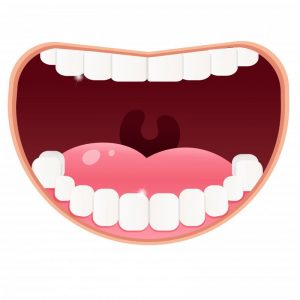
Remember when you were taught about oral care as a child? You might be thinking, “No, but I remember being taught how to brush my teeth.” That’s not a surprising response, since the teeth tend to get the lion’s share of attention when it comes to parts of the mouth.
However, there are many other components of your mouth that help your teeth and facilitate your general oral health. Keep reading to learn more from your dentist in Long Island City.
Your Cheeks, Lips, and Tongue Help Your Teeth Out
Your lips and cheeks contribute to everything from forming your facial expressions to breathing to speaking. They also keep food and saliva in your mouth while you chew. These strong muscles brace your teeth to keep them in the proper position.
The tongue is a powerful muscle that facilitates chewing, swallowing, speaking, and tasting food. Taste buds, sensory receptors on your tongue, enable you to enjoy the food you eat. In fact, the human tongue can have up to 10,000 taste buds, which help you detect sweet, salty, bitter, and savory flavors.
The pressure that the tongue applies within the mouth helps the oral cavity maintain its shape and keeps the teeth in their proper position.
What Are My Temporomandibular Joints Used for?
Your two temporomandibular joints facilitate your ability to chew, speak, and swallow. They also enable your mouth to open and close, as well as allow you to move your lower jaw forward and side to side.
These joints are located on both sides of your head near your ears and work together with your jawbone, facial muscles, and ligaments. Any disruption to the synchronization of this pair, which can happen if you grind your teeth at night, can result in facial pain, difficulty in chewing, and jaw stiffness.
How Do My Salivary Glands, Gums, and Alveolar Bone Aid My Teeth?
You have six salivary glands that produce the clear liquid known as saliva, which is made up predominantly of water and contains substances that break down food to begin the digestive process. Saliva also moistens your mouth to help with speaking, chewing, and swallowing.
Plus, it washes bacteria from your teeth and gums. The proteins and minerals in saliva play a vital role in protecting the enamel, as well.
Your mouth’s gum tissue holds your teeth in place and protects the roots from decay. You may be familiar with gum disease, and the main symptoms include swelling and chronic bleeding. These warning signs are important because unchecked gum disease can lead to tooth and bone loss.
On the other hand, the alveolar bone is not a well-known portion of the mouth. The roots of your teeth anchor them in your jawbone. The alveolar bone surrounds the roots to stabilize the teeth.
Not to contradict what you were taught as a child – taking care of your teeth is very important. But it’s also helpful to realize that there are many parts of the mouth, and they all serve a purpose to support your teeth and general oral health. Your dentist in Long Island City can provide further details at your next exam when they inspect your teeth and everything that goes into your oral care.
About the Practice
At LIC Dental Associates, it’s important to use that the patient experience provides comprehensive, personalized, and quality care in a relaxing and stress-free environment. We serve the Long Island City community and surrounding areas. We offer a comprehensive list of services and can formulate a customized treatment plan to meet your needs and exceed your expectations. If you are interested in a dental cleaning and exam, our accomplished team of experts welcomes patients of all ages, and evening and weekend appointments are available. We can also talk more about the parts of the mouth referenced here and why each one is important to help you function optimally. To make an appointment, visit our website or call (718) 530-6539.
